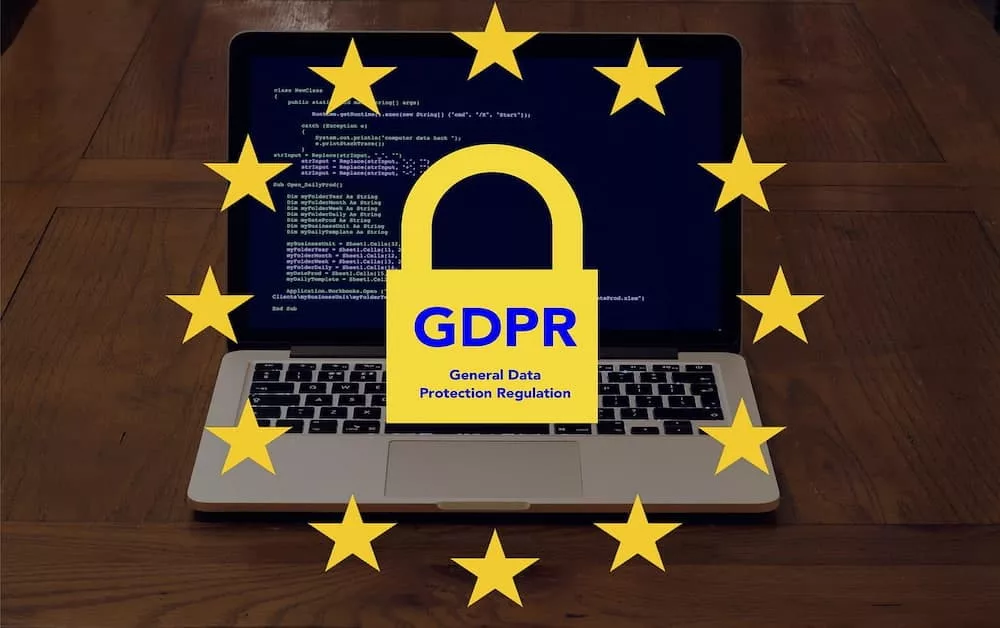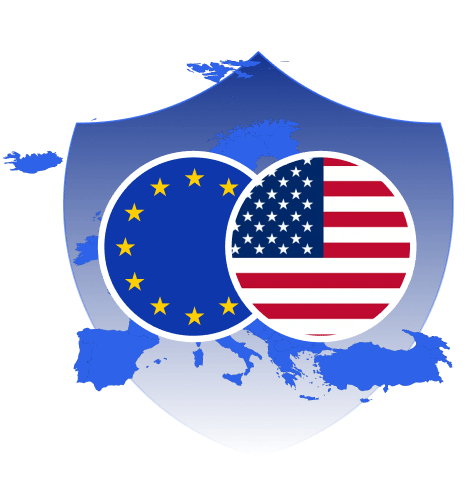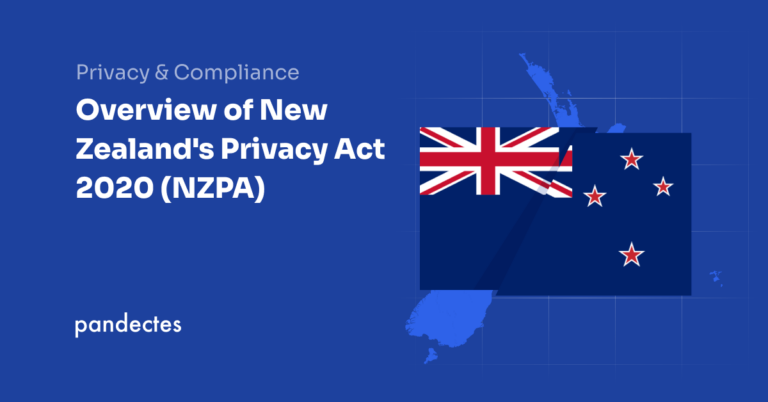Introduction
When it comes to EU-based businesses engaging with their U.S. customers, they must ensure compliance with the comprehensive U.S. privacy laws. It is a complex task that involves navigating the intricacies surrounding data subjects, data protection officers, and relevant regulations. This article aims to provide a detailed guide covering all the important compliance requirements and aspects. It will help businesses understand the nuances of U.S. privacy laws and enable them to take the necessary steps to comply with them comprehensively. The guide will also provide insights into the best practices that businesses can adopt to mitigate the risks and ensure the safety and privacy of their customer’s data.
Understanding data subjects and Data Protection Officers
EU-based businesses operating in the U.S. must first grasp the concept of data subjects—individuals whose personal data is processed. A data protection officer (DPO) should be appointed to oversee compliance with data protection regulations, acting as a liaison between the data protection authorities, the business, data subjects, and regulatory authorities. This role becomes crucial for navigating the intricate landscape of U.S. privacy laws.
A U.S. business often processes personal data for various purposes, and understanding the role of a DPO ensures that EU-based companies align their practices to process data with regulatory expectations. This aligns with the General Data Protection Regulation (GDPR) principles, emphasizing transparency and accountability in processing personal data.
Navigating the complexities of data transfers
The transfer of EU personal data to the U.S. demands careful consideration due to differences in data privacy laws. Recent developments like the EU-U.S. Data Privacy Framework aim to establish a secure transfer mechanism. EU-based businesses must stay informed about the latest adequacy decisions, ensuring their data transfers adhere to the prescribed legal frameworks.
Navigating these complexities requires a deep understanding of both EU and U.S. regulations, such as the GDPR and the California Consumer Privacy Act (CCPA), to mitigate risks associated with data transfers and uphold the privacy rights of EU data subjects.
Compliance with GDPR and CCPA: A balancing act
Achieving compliance involves reconciling the GDPR’s stringent requirements with the nuanced landscape of U.S. privacy laws, especially the CCPA. EU-based businesses must implement measures to protect both EU and U.S. data subjects, considering the varying definitions and scope of personal data in these regulations.
While the GDPR focuses on protecting the fundamental rights of EU citizens, the CCPA extends its coverage to California residents, necessitating tailored approaches for data processing activities. Businesses need to adopt a comprehensive strategy that addresses the divergent aspects of these regulations to maintain a delicate balance in compliance.

Data processing agreements: Building legal foundations
Executing robust data processing agreements (DPAs) is fundamental for EU-based businesses navigating U.S. privacy laws. DPAs outline the terms under which data is processed, providing legal clarity and ensuring that both parties understand their responsibilities in a data processing agreement handling personal data.
These agreements shield against potential disputes and demonstrate a commitment to GDPR compliance. Businesses establish a solid legal foundation that aligns with the principles of transparency and accountability by explicitly defining the scope, purpose, and duration of data processing activities.
Role of data controllers in privacy compliance
EU-based businesses must recognize their role as data controllers and fulfill the responsibilities associated with this designation. Understanding the nuances of U.S. privacy laws is essential for ensuring compliance, as a data controller bears the primary responsibility for protecting the rights of data subjects.
By adopting a proactive approach, data controllers can establish robust processes to collect, process, and safeguard personal data under EU and U.S. regulations. This includes implementing technical and organizational measures to secure data and promptly responding to data breaches to minimize potential harm to data subjects.
Mitigating data breach risks: Strategies for protection
Data breaches pose a significant threat to EU-based businesses operating in the U.S., carrying severe legal and financial consequences. To mitigate these risks, companies must implement comprehensive security measures aligning with the requirements of both the GDPR and U.S. privacy laws.
Proactive measures include encrypting sensitive data, regularly updating security protocols, and conducting thorough risk assessments. By prioritizing data security, businesses safeguard the privacy of EU data subjects and fortify their defenses against potential legal repercussions and reputational damage.
Data subject rights: Upholding privacy principles
EU data subjects enjoy robust rights under the GDPR. EU-based businesses must ensure these rights are preserved when processing personal data in the U.S. Understanding the intricacies of data subject rights, such as the right to access rectification and erasure, is essential for compliance.
Businesses must establish mechanisms for data subjects to exercise their rights seamlessly, providing transparent processes for requesting and obtaining personal information. By upholding these privacy principles, EU-based companies can instill trust among data subjects and demonstrate their commitment to privacy protection.

GDPR compliance as a foundation
Based on GDPR compliance’s foundation, EU-based businesses can navigate U.S. privacy laws more effectively. The GDPR’s comprehensive framework offers a solid starting point for understanding and implementing privacy protection measures.
Adopting GDPR principles, such as privacy by design and default, ensures that privacy considerations are embedded into all data processing activities. This proactive approach enhances compliance and establishes a culture of privacy within the organization, aligning with the expectations of both EU and U.S. regulators.
Addressing sensitive data processing challenges
Processing sensitive data requires heightened vigilance, especially for EU-based businesses operating in the U.S. Companies must identify and categorize sensitive data to ensure compliance with U.S. privacy laws, implementing additional safeguards to protect this information.
Whether it’s health-related data, financial information, or other sensitive categories, businesses must establish clear policies and procedures for processing such data. This includes obtaining explicit consent when necessary, implementing strict access controls, and regularly auditing sensitive data processing activities to detect and address potential vulnerabilities.
Ensuring compliance with state laws
In addition to federal U.S. privacy laws, businesses must navigate a complex landscape of state-specific regulations. Understanding and adhering to state laws, such as those related to data breach notification requirements, is crucial for maintaining comprehensive compliance.
Each state may have unique provisions, and EU-based businesses must stay informed about these nuances to avoid legal pitfalls. Establishing a proactive approach to compliance with state laws complements broader efforts to align with U.S. privacy regulations and protects businesses from potential legal consequences.
Data security measures: A prerequisite for compliance
Ensuring the security of personal data is a cornerstone of privacy compliance for EU-based businesses in the U.S. Implementing robust data security measures, including encryption, access controls, and regular security audits, is essential to protect against unauthorized access and data breaches.
Businesses should conduct risk assessments to identify potential vulnerabilities in their data processing activities and take prompt corrective actions. By prioritizing data security, companies comply with regulatory requirements and fortify their defenses against evolving cyber threats.

Limiting access to personal data
Limiting access to personal data is a critical aspect of privacy compliance. EU-based businesses must adopt a principle of least privilege, ensuring that only authorized personnel have access to personal data.
Implementing strict access controls, role-based permissions, and regular access reviews contribute to a secure data processing environment. By restricting access to personal data, businesses reduce the risk of unauthorized disclosures and enhance their overall data protection posture.
Obtaining consent for data processing activities
In the U.S., obtaining consent for data processing activities is often an essential requirement. EU-based businesses must understand the nuances of U.S. consent regulations and ensure that their practices align with GDPR and local U.S. standards.
Clear and transparent communication about data processing purposes, coupled with mechanisms for obtaining and managing consent, is crucial. Businesses should keep records of consent to demonstrate compliance in the event of regulatory scrutiny, fostering a culture of accountability in data processing activities.
National security considerations: Striking a balance
Upholding privacy while considering national security interests is a delicate balance that EU-based businesses must navigate. The tension between data protection and national security necessitates a nuanced approach, mainly when dealing with government agencies and intelligence authorities.
Understanding the legal frameworks that allow for data processing activities in the interest of national security. EU businesses must stay vigilant, ensuring that their practices comply with U.S. laws while safeguarding the privacy rights of EU data subjects.
GDPR and the extraterritorial scope
EU-based businesses must be aware of the extraterritorial scope of the GDPR, which extends its reach beyond EU member states. This means GDPR compliance obligations persist even when processing personal data in the U.S.
By recognizing the extraterritorial applicability of the GDPR, businesses can adopt a consistent approach to privacy protection, irrespective of the geographical location of their data processing activities. This aligns with the GDPR’s overarching goal of ensuring a high level of protection for the personal data of EU citizens, regardless of where it is processed.

Federal law vs. state laws: Navigating legal complexity
Integrating federal privacy laws and state-specific regulations is complex for EU-based businesses. While federal laws provide a baseline, understanding and complying with state laws is equally vital for comprehensive privacy protection.
Businesses need to conduct thorough assessments to identify variations in requirements across different states. This granular approach ensures that privacy compliance efforts are tailored to meet the specific demands of each jurisdiction, mitigating the risk of non-compliance with state-specific laws.
Role of the Federal Trade Commission (FTC)
The Federal Trade Commission (FTC) plays a pivotal role in enforcing privacy laws in the U.S. EU-based businesses must be familiar with the FTC’s authority and its expectations regarding consumer data protection.
Compliance with FTC regulations involves transparency, honesty, and a commitment to protecting consumers’ data. Understanding the FTC’s role and incorporating its guidelines into privacy compliance strategies strengthens EU businesses’ overall approach to data protection in the U.S.
Children’s data: Special considerations
Processing children’s data involves additional safeguards to protect their privacy. EU-based businesses must align their practices with U.S. regulations, such as the Children’s Online Privacy Protection Act (COPPA), which sets specific requirements for collecting, processing, and storing children’s personal information.
Businesses should implement age verification mechanisms, obtain parental consent when necessary, and provide clear privacy notices tailored to a younger audience. By prioritizing protecting children’s data, EU-based companies are committed to ethical data processing practices.
Automated processing and privacy compliance
As technology advances, automated processing becomes more prevalent in data activities. EU-based businesses must ensure that automated processes comply with GDPR and U.S. privacy laws.
Transparency in automated decision-making, informed consent when applicable, and regular assessments of algorithms are essential elements of privacy compliance. By addressing the challenges associated with automated processing, businesses meet regulatory requirements and build trust with data subjects regarding fair and ethical data practices.

Consequences of non-compliance: Legal and financial ramifications
The repercussions of non-compliance with U.S. privacy laws can be severe for EU-based businesses. Besides legal consequences, including fines and sanctions, financial ramifications and reputational damage can be substantial.
Understanding the potential financial consequences, including penalties under the CCPA and other applicable regulations, reinforces the urgency of compliance efforts. Proactive measures, such as regular audits and continuous monitoring of evolving privacy legislation, are essential for mitigating non-compliance risks.
Conclusion
Ensuring compliance with U.S. privacy laws is a multifaceted challenge for EU-based businesses. Businesses can navigate the complex regulatory landscape effectively by understanding the nuances of data subjects, data transfers, GDPR and CCPA compliance, data processing agreements, and various other aspects discussed in this comprehensive guide. The path to compliance involves strategic planning, proactive measures, and a commitment to upholding the privacy rights of both EU and U.S. data subjects. In the ever-evolving field of data protection, staying informed about the latest developments and regulatory updates is critical to maintaining a robust privacy compliance strategy.




